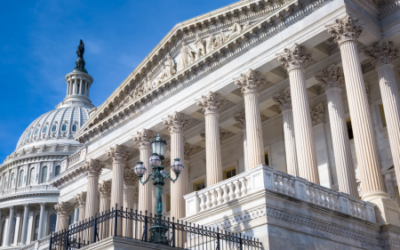The battle between President Donald Trump and the National Football League (NFL) regarding players being allowed to kneel during the pre-game playing of the National Anthem is headed into overtime. The brouhaha has dominated the news for weeks and it centers on some NFL players “taking a knee” during the playing of the National Anthem. While the athletes say they are protesting social inequality in the U.S., Trump sees their actions as disrespectful to both the nation’s flag and anthem.
Until recently, this battle has mostly been one of words, with Trump insisting that the NFL should develop a rule that forces players to stand during the National Anthem. He has received pushback from players, owners and the league. But recently, the president escalated the battle and his latest comments were aimed at hitting the NFL where it hurts most – in the pocketbook.
Trump questioned whether tax law reform could eliminate the billions of dollars in tax-exempt municipal bonds that are used to help finance professional football and baseball stadiums and basketball and hockey arenas. That’s a frightening thought for public officials, economic development groups, sports organizations, players and fans.

The municipal bond tax exemption has been in federal law since the federal income tax was instated more than 100 years ago. Because of the municipal bond tax exemption, state and local governments get a very low interest rate – sometimes up to 2 percentage points lower than they could get borrowing money anywhere else. Eliminating or capping any part of the municipal bond tax exemption would result in billions of dollars in interest expense for numerous public projects. That would cause further drain on state and local budgets that are already stretched to the limit. Reuters reports that last year alone, U.S. municipal bond sales were at $42.8 billion, a six-year high.
But, back to sports stadiums… Since 2000, 45 professional sports stadiums nationwide have been or are being built or reconstructed, according to the Brookings Institute. At least 36 of them used funding that included more than $13 billion in tax-exempt municipal bonds.
Financing for two new facilities in Texas – the home of NFL football’s Dallas Cowboys and the site for Dallas Mavericks and Dallas Stars basketball and hockey games, together includes $489 million in tax-exempt debt. The Houston Astros’ new $344 million baseball park’s financing included $229 million in tax-exempt bonds, while the $624 million new football stadium for the Houston Texans included $423 million in municipal bonds. The Houston Rockets’ new facility was built using $304 million in the tax-exempt bonds and the San Antonio Spurs organization benefitted from $169 million in municipal bonds to help finance its $245 million arena.
The new home for the Detroit Red Wings hockey team, completed this year, benefitted from $250 million in municipal bonds. Financing for the New York Yankees’ new $2.5 billion stadium, completed in 2009, included $1.6 billion in tax-exempt municipal bonds, while in Minnesota, the Twins professional baseball team’s new $591 million facility’s financial package included $383 million in municipal bonds. In 2003, Lambeau Field, home of Green Bay Packers football, underwent a $380 million renovation that relied on $143 million of the tax-exempt instruments.
In recent months, legislation has been introduced in both the U.S. House and Senate to end municipal bond use for sports venues. If the president’s feud with the NFL continues, these bills could garner public support and come front and center soon.
The U.S. Senate Joint Committee on Taxation estimates that the tax exemption on these bonds would result in $187.7 billion in lost federal tax revenue from 2015 to 2019. That argument will resonate with some … and if that legislation passed, the resulting impact to this country’s love of sports would be staggering.
Since 1995, SPI’s procurement consulting services have helped companies of all sizes effectively navigate the various jurisdictions of government procurement. Contact them today to learn how they can help grow your business.






